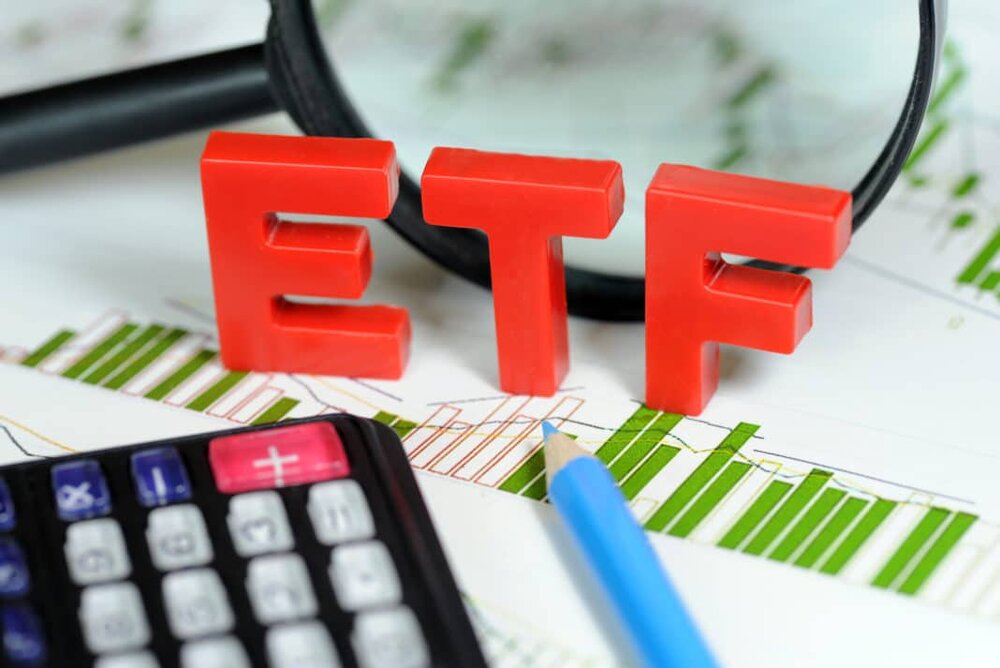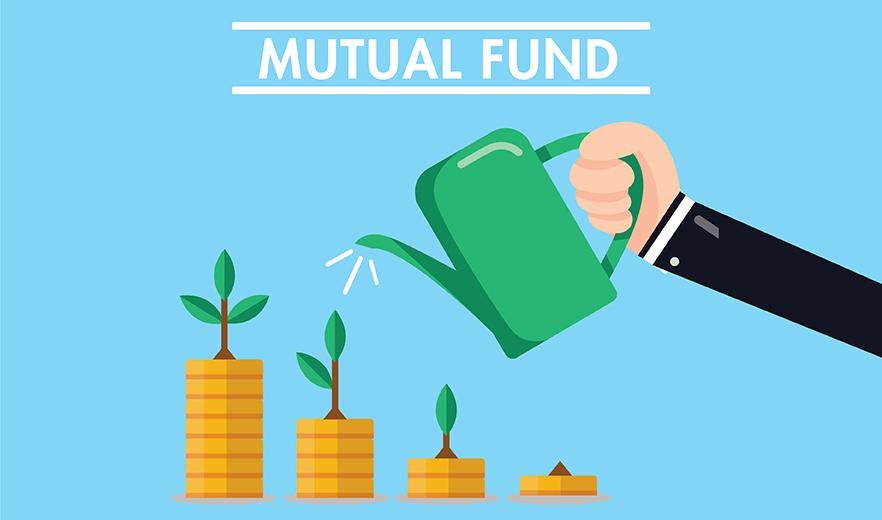Financial freedom is one of the goals that investors pursue. Achieving this freedom requires information about a variety of investment methods so that you can both maintain the value of our assets and take steps to grow them. According to Jeff Rohde, it’s all about how much money you keep, not how much you make. And without financial literacy, you’ll lose your money soon.
The stock market is one of the investment methods which if utilized correctly and skillfully, can bring a good profit for the investor. But not all people have the skills, information, or time to invest. For this reason, they must protect the value of their money by using indirect investment methods, one of them is “investment fund.”
What Is an Investment Fund?
Lack of time and information about other available investment opportunities makes most people invest in the bank. As a result, they lose the chance to earn more profits. One of the high-return investments is investing in mutual funds. These funds are suitable for people who intend to invest indirectly in the stock market or who do not have enough time and information to invest directly. This way, the investor earns higher returns than a bank deposit.
According to Investopedia, Investment Fund is ”a supply of capital belonging to numerous investors used to collectively purchase securities while each investor retains ownership and control of his own shares. Types of investment funds include mutual funds, exchange-traded funds, money market funds, and hedge funds.”
You can think of it as a company where different people put their money together and invest in a portfolio of securities.
What Are the Benefits of Mutual Funds?
Professional Asset Management:
The first advantage of mutual funds is the professional management of your money. Mutual funds are a tool for small investors to use the abilities and skills of professionals to invest and monitor their assets. In these funds, analysts and investment managers are constantly striving to provide excellent performance for their investors by finding suitable options and buying and selling them in a timely manner.
Investment Risk Reduction:
According to some countries’ Securities and Exchange Commission rules, investment funds must form a diverse portfolio of cash assets and securities. These assets include fixed-income assets such as bank deposits and equity securities, which significantly reduce investment risk. The formation of this portfolio of assets is “asset diversification.” The investor can buy such a basket by paying a certain amount and reducing direct investment risks in the stock market.
Information Monitoring and Transparency:
In many countries, various institutions inspect investment funds at regular intervals and transparently inform all their activities. The fund trustee also continuously monitors the fund’s performance.
High Liquidity:
Investing in a fund allows you to cash in very quickly. This means that whenever you decide to liquidate your assets, the fund guarantor assumes this task.
Economies of scale:
Although mutual funds are consist of micro-capital raising, investors can reap the benefits of a prominent investment package. A micro-capitalist cannot invest in various options. However, a large amount of capital in mutual funds provides a great variety of investments. In addition, the fund divides the costs such as analysis, review, valuation, buying and selling, and other expenses among investors, which makes it very cost-effective.
What Is an Investment Unit?
Numerous people deposit different amounts of money in mutual funds. The sum of all these amounts forms the fund’s assets. To determine each person’s share and also to make it easy for individuals to enter and exit the fund, the investment fund assets are divided into sections called “units”. People can buy the number of units they need. They can also sell the whole or specific number of their units whenever they want. As a result, individuals can invest in minor amounts. In addition, in the case they need cash, there is no need to withdraw all their capital from the fund.
Learn more: Difference Between Common Stock and Preferred Stock
The Units’ Creation and Cancellation in Mutual Funds
It takes two or three days to determine the price of units in non-tradable funds. When people invest, they buy a limited number of units. After three days, the cost of the units is determined. Due to the constant change in unit prices, there will be always a difference between the amount paid and the number of units purchased. The fund returns the excess money to the individual’s accounts. At the time of sale, after submitting the unit sale request, it takes two days for the unit price to be determined and the individual units to be sold or cancelled.

Types of Investment Funds
Another great advantage of mutual funds is that they are very diverse. You can find an investment fund for almost every investment taste and risk level. In fact, the main difference between the types of mutual funds is their assets’ composition. Depending on their nature, funds invest a percentage of their capital in low-risk options such as bank deposits and bonds, and the rest in more risky choices.
In the following, we discuss different types of investment funds.
Fixed-Income Investment Fund
These types of funds invest 70% to 90% of their assets in bonds, bank deposits, certificates of deposit, and other fixed-income securities. The rest of the fund’s assets are invested in the stock exchange with the fund manager’s opinion (up to 10%).
These funds are suitable for individuals who don’t want to take high risks. Beyond feeling safe, these people also receive a guaranteed minimum profit. Fixed-income investment funds pay dividends to their investors in predetermined periods (for example, monthly or quarterly). Their liquidity is also high. This means that individuals can easily convert their units into cash. Most of these funds also have a liquidity guarantor, usually a reputable financial institution. This guarantor makes investors feel more assured. Finally, Fixed-income investment funds are usually more profitable than banks. So for people who have always invested their money in the bank, it is an attractive option.
Joint Stock Investment Funds
These types of funds invest at least 70% of their assets in stocks. The remaining 30% is invested in stocks, bonds, bank deposits, or other fixed-income securities, according to the fund manager’s opinion. The risk of these types of funds is higher than that of the previous one. On the other hand, as a large portion of the assets of Joint Stock funds is invested in the stock market, they do not provide a guaranteed minimum return.
These funds are more suitable for people who want to invest in the stock market but do not have the necessary information. Thanks to these types of funds, people can invest their capital in the stock market under the supervision of a professional team and experts in financial and investment issues. Although this type of investment is riskier, it may offer an attractive return compared to fixed-income investment funds. For example, when the stock market is performing well, these funds’ return rates and profitability are much higher than fixed-income funds. Many of these funds also guarantee liquidity.
Best Joint Stock Investment Funds
At the initial public offering of joint-stock investment funds or mixed mutual funds, try to allocate a portion of your capital to purchase its units. Experience has shown that the value of newly established mutual fund units increases dramatically over three to five years. That’s why it is a safe investment. On the other hand, the number of Joint Stock Investment Funds is not small, and each of them has different prices according to their background.
You may ask, “How do I choose a fund?” You can compare the performance history of different Joint Stock Investment Funds or mixed funds by visiting the relevant sites.
Mixed mutual funds usually invest in specific industries. As they have a large amount of capital, they do not make constant transfers between different sectors. Thus, In addition to reviewing the performance of the funds, visit their website and see what industries the fund is investing in. This helps you decide on choosing a successful fund.
Mixed Investment Funds
These types of funds invest up to 60% of their assets in stocks. The remaining 40% of the assets are invested in fixed income securities such as bonds and bank deposits. In general, we can say that these types of investment funds are located between the two previous funds in terms of being risky. These funds also have a higher return potential than fixed-income funds. But because of the investment in stocks, they do not have the minimum guaranteed profit. Many of these funds guarantee liquidity.

Exchange-Traded Funds (ETFs)
An ETF is a basket of bonds, shares of which are sold on an exchange. The main activity of these funds is investing in bonds or tangible assets that are the primary assets of the fund. The performance of ETFs depends on the performance of their underlying assets. We can say that the most prominent feature of these funds is the tradability of their investment units in the capital market. In this way, the units of ETFs are traded in the OTC market trading system in the form of ordinary stock trading. Tradable funds can be any of the three types of mutual funds mentioned before. As ETFs units are traded on the stock exchange, market supply and demand and stock market conditions can affect the unites prices. Furthermore, buying and selling these funds through the stock exchange can help make them more liquid.
Gold Mutual Funds
When it comes to saving money, many people prefer to save part of their capital by buying gold. However, keeping gold stored is very unsafe; one should ensure that he has insurance that covers it in the case of loss or theft. Gold Mutual Funds make a profit by buying and selling coin deposits and a variety of gold-based securities, which are commonly traded on the stock exchange. Thus, beyond the reduced risk of loss or theft, individuals can invest in gold even in small quantities. Of course, these funds can invest their surplus assets in fixed income securities, deposits and bank certificates of deposit.
Land and Property Investment Fund
In many countries, investing in land and property is among the best options for investment. This type of investment requires huge sums of money. Land and building investment funds attract small capital from individuals or legal entities to invest in large construction projects. This way, small investors can take advantage of investment in large and lucrative construction projects.
Project Financing Investment Funds
Project financing investment funds attract investors to finance industrial, mining, oil and petrochemical projects. The purpose of establishing this type of fund is to collect capital from individuals and allocate it to the operation of various projects.
Charity Investment Fund
Charity Investment Funds have provided a new and attractive opportunity for charity investments. These funds are to meet specific charity goals such as supporting an international award, sports such as baseball, and even a particular sports club. Instead of paying money for once, people who want to support these charitable goals invest in these funds and allocate their profits to these goals. Of course, individuals can use a part of the profit and assign the rest for that charity purpose.
Venture Capital Funds
Instead of following a linear path, some businesses take an exponential and accelerating path toward growth and success or decline and bankruptcy. However, startups are always more likely to fail, but a small number of them succeed and make up for losses caused by other startups failures. Google, Amazon and Telegram are good examples of successful startups that have made their investors wealthy.
Some people prefer these funds, which invest in innovative ideas and businesses and may bring about a great benefit to them.
Learn more: Venture Capital vs Private Equity: What Is Venture Capital Investment?
Dedicated Marketing Fund
As the name implies, they are funds specializing in marketing pre-determined shares of a company or industry. Marketing refers to the buying and selling of shares of a particular company or industry, which improves liquidity and keeps the market balanced.
Index Investment Fund
Index investment funds invest the accumulated financial resources in a way that achieves a performance similar to that of one of the capital market indicators; No less, no more.

